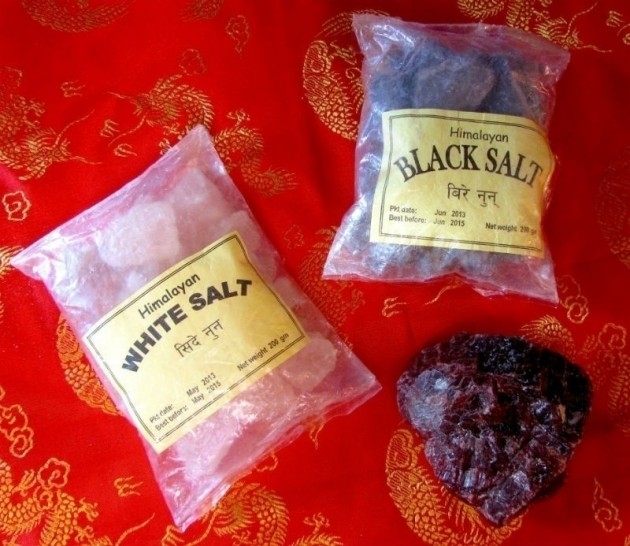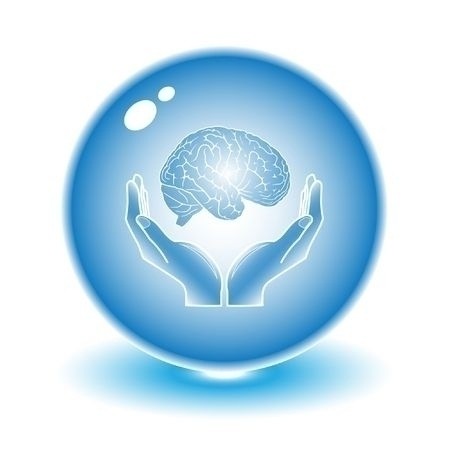Signs and Symptoms
- Slow pulse
- Lethargy
- Hoarse voice, slowed speech
- Goiter (caused by swollen thyroid gland)
- Intolerance to cold
- Weight gain
- Constipation
- Dry, scaly, thick, coarse hair
- Numbness in fingers or hands
- Confusion, depression, dementia
- Headaches
- Menstrual cramps or other menstrual disorders
- In children, growth retardation, delayed teething, and mental deficiency
What Causes It?
The various forms of hypothyroidism have different causes. In Hashimoto's thyroiditis, antibodies in the blood mistakenly attack the thyroid gland and start to destroy it. Post-therapeutic hypothyroidism occurs when treatment
for hyperthyroidism leaves the thyroid unable to produce enough thyroid hormone. And hypothyroidism with goiter results when your diet lacks iodine. The addition of iodine to salt in the developed world has made this rare, though it still happens in undeveloped countries.
Suggested Nutritional Supplementation
- T-100 - 1-2 tablets three times daily
Comprehensive Thyroid support Formula
- Thyrosol® - 1-2 tablets three times daily
Thyrosol is an exciting multi-faceted formula featuring targeted nutrients and herbs that promote healthy
thyroid function.
- Wellness EssentialsTM - 1 packet twice daily.
Base nutrition with essential fatty acids and detox support.
Additional Considerations
- Thyroid Plus Cream - 1/4 tsp just before bedtime
Thyroid Support Cream
- N-14 Thyroid Plus - 10 drops three times daily
Homeopathic Endocrine Thyroid Support
Dietary Suggestions
- Avoid foods that interfere with thyroid function, including broccoli, cabbage, brussels sprouts, cauliflower,
kale, spinach, turnips, soybeans, peanuts, linseed, pine nuts, millet, cassava, and mustard greens.
- Avoid refined foods, dairy products, wheat, caffeine, and alcohol.
- FirstLine Therapy® Diet
Hyperthyroidism
Hyperthyroidism is when your thyroid gland, located at the front of your neck, produces too much thyroid hormone,
causing your metabolism to speed up. Hyperthyroidism has three forms that share several symptoms. The most common form is Graves' disease. Hyperthyroidism can also be caused by taking too much thyroid hormone when you are being treated for hypothyroidism. Hyperthyroidism is more common in women than men and usually occurs between the ages of 20 - 40. It often starts after times of extreme stress or during pregnancy.
Signs and Symptoms
- Rapid heart rate and palpitations
- Shortness of breath
- Goiter (swelling of the thyroid gland)
- Moist skin and increased perspiration
- Shakiness and tremor
- Anxiety
- Increased appetite accompanied by weight loss
- Insomnia
- Swollen, reddened, and bulging eyes (in Graves' disease)
- Occasionally, raised, thickened skin over the shins, back of feet, back, hands, or even face
- In crisis: fever, very rapid pulse, agitation, and possibly delirium
- Changes in menstrual periods
What Causes It?
Researchers suspect that Graves' disease (the most common form of hyperthyroidism) is caused by an antibody that mistakenly stimulates the thyroid to produce too much hormone. Toxic nodular goiter is caused by a non- cancerous tumor in nodules that make up the thyroid gland. Secondary hyperthyroidism results when a gland called the pituitary overrides the thyroid's normal instructions, and orders it to make too much thyroid hormone.
Suggested Nutritional Supplementation
- UltraInflamX® - 2 scoops twice daily.
Medical food for inflammation and biotransformation
- Follow the Anti-Inflammatory Diet
- Kaprex® AI - 1 tablet three times daily.
Selective Kinase Response Modulators for Balanced Immune Function. Kaprex AI targets underlying issues-such as eicosanoid, cytokine, and white blood cell activity and vitamin D levels-that have been associated with minor pain and immune system response concerns.
- EPA-DHA 6:1TM Enteric Coated - 2 softgels three times daily.
EPA-DHA 6:1 Enteric Coated omega 3 fatty acids providing a ratio appropriate for patients with chronic inflammatory conditions.
- Iso D3TM - 1 tablet three times daily.
Iso D3 delivers 2,000 IU of Vitamin D3 with Isoflavones that may help facilitate the body's utilization of vitamin D3 for enhanced health benefits.
If there is a soy sensitivity use:
- D3 1000TM - 2 microtablets three times daily. Bioactive Vitamin D in a microtablet delivery form
Additional Nutritional Support Considerations
Thyroid Support
- Thyrosol - 1-3 tablets twice daily
Thyrosol is an exciting multi-faceted formula featuring targeted nutrients that promote healthy thyroid
function.
Dietary Suggestions
- Avoid foods that interfere with thyroid function, including broccoli, cabbage, brussels sprouts, cauliflower,
kale, spinach, turnips, soybeans, peanuts, linseed, pine nuts, millet, cassava, and mustard greens.
- Anti-Inflamatory Diet
Thyroiditis
Thyroiditis is an inflammation of the thyroid gland. There are several types of thyroiditis. Most result in three phases: overactive thyroid (hyperthyroidism), under-active thyroid (hypothyroidism), and return to normal. When the thyroid is inflamed, it often releases an excess of thyroid hormone, resulting in hyperthyroidism. As the supply
of thyroid hormone is depleted, the body has too little, and hypothyroidism the results. Young to middle-aged women seem most at risk, although some forms of thyroiditis occur in both men and women of all ages. With some forms, hypothyroidism may develop years later even if the thyroiditis has resolved.
Signs and Symptoms
Depending on the type of thyroiditis, the thyroid gland can have one of the following characteristics:
- Firm and enlarged, but not tender
- Enlarged and painful, with pain extending to the jaw or ears
- Enlarged but not painful
- Enlarged on only one side, hard like a stone, and sticking to other neck structures
You may also have one or more of the following symptoms:
- Cool, dry skin, slow pulse rate (less than 60 beats per minute), swelling around the eyes, hoarseness, or slow reflexes
- No desire to eat, feeling tired and unenergetic, and a slight fever
- A rapid heartbeat, slight nervousness, anxiety, weight loss of 5 - 10 pounds, and increased sweating
What Causes It?
Immune disorders, viruses, and fever disorders can cause thyroiditis. Sometimes thyroiditis develops if you have Graves' disease (an autoimmune disorder that causes hyperthyroidism). In some cases, there is no identifiable cause.
Suggested Nutritional Supplementation
- UltraInflamX® - 2 scoops twice daily.
Medical food for inflammation and biotransformation
- Follow the Anti-Inflammatory Diet
- Kaprex® AI - 1 tablet three times daily.
Selective Kinase Response Modulators for Balanced Immune Function. Kaprex AI targets underlying issues-such as eicosanoid, cytokine, and white blood cell activity and vitamin D levels-that have been associated with minor pain and immune system response concerns.
- EPA-DHA 6:1TM Enteric Coated - 2 softgels three times daily.
EPA-DHA 6:1 Enteric Coated omega 3 fatty acids providing a ratio appropriate for patients with chronic inflammatory conditions.
- Iso D3TM - 1 tablet three times daily.
Iso D3 delivers 2,000 IU of Vitamin D3 with Isoflavones that may help facilitate the body's utilization of vitamin D3 for enhanced health benefits.
If there is a soy sensitivity use:
- D3 1000TM - 2 microtablets three times daily. Bioactive Vitamin D in a microtablet delivery form
Additional Nutritional Support Considerations
- Thyroid Support
- Thyrosol - 1-3 tablets twice daily
Dietary Suggestions
- Avoid foods that interfere with thyroid function, including broccoli, cabbage, brussels sprouts, cauliflower,
kale, spinach, turnips, soybeans, peanuts, linseed, pine nuts, millet, cassava, and mustard greens.
- Anti-Inflammatory Diet






